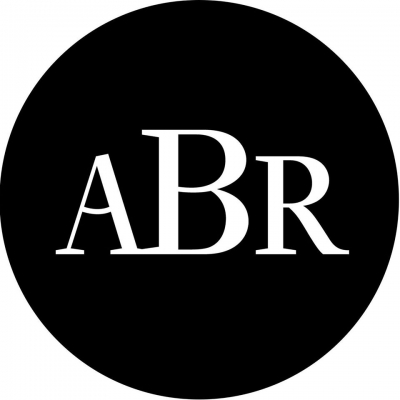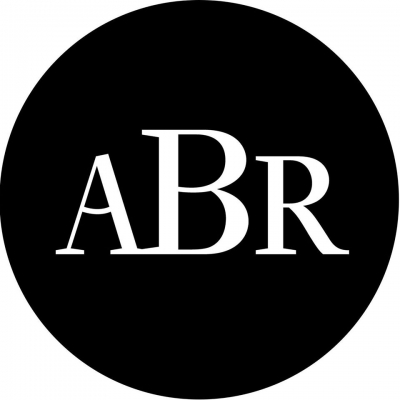Abbreviations
For part of my life I lived for many years in a monastery. Singing, particularly of plain chant, was important, and the monastery was divided, with a monastic, unworldly sense of the implication of its metaphors, into ‘the choir’ and ‘the scrubbers’. I excelled. Whatever vocation I had, it certainly included being an eternal scrubber. For many years I spent fifteen minutes a day with a patient friend who attempted to teach me to sing the Gospel for the third Sunday before the Epiphany. Standing in the monastery basement and earnestly inhaling the smell of monks’ football boots and sandshoes and unwashed football jumpers, I could never get this simple piece of plain chant right.
... (read more)I has sworn, in my editorial capacity, not to reinforce or allow to be reinforced, by word or deed, the old Sydney vs. Melbourne scenario in the pages of this magazine; but I realised very quickly that this was a case of one’s reach exceeding one’s grasp. The construction of this inter-city relationship as ‘St Petersburg or Tinsel Town?’, with its suggestion of two (and only two) opposing superpowers and its implication that one must make the choice, has – however you might feel about it – an imaginative force before which one can only bow. Several recent items in ABR have drawn on the two cities’ perceived differences in order to make points about the books or ideas under discussion (see, for instance, Rob Pascoe’s review of Frederic Eggleston and Intellectual Suppression in this issue); Jim Davidson has produced The Sydney Melbourne Book as heralded in last month’s ‘Starters & Writers’; the ‘opposition’ model seems to be a powerful figure in the national literary rhetoric.
... (read more)The two lots of new-look literary pages in the Age Saturday Extra and the National Times on Sunday are bidding fair to brighten up the weekends, especially for Victorians and for Other-Staters who also read the Age on Saturdays and will therefore get the benefit of both.
On the retirement of Stuart Sayers, Rod Usher has taken over the editorship of what is now the ‘Books’ part of ‘Arts and Books’ in the Age Saturday Extra, and is making a pretty classy fist of (and here I speak from experience and from the heart) an extremely demanding job. The few reservations I’ve heard around the traps have been to do with the number of Age staff reviewing books, and with the possibility that the ‘Books’ may get swamped by the ‘Arts’ now that they’re a double act. These odd mutterings are fair enough, but overall the whole section’s looking good.
... (read more)This year’s annual conference of the Association for the Study of Australian Literature was held in mid-July at James Cook University in Townsville, to which some two hundred delegates flocked to soak up ideas, information, sunshine, and the odd ale. Everybody had a good time except possibly the indefatigable organisers, Tony Hassall, Robert Dixon, and Stephen Torre, who, if they were not too exhausted to enjoy themselves, ought to have been. In general, the relaxed and benign atmosphere one has come to know and love at ASAL conferences prevailed.
... (read more)Vale John Hanrahan. Dear reader, if you think you miss him, you should see how I feel. I tried to get a Sydney person to take over this column. I really did. He said no. (Actually, he laughed.) So for those Sydney people who complain that ABR suffers from rampant Melbocentrism (and as a native of Adelaide I am far from blind to the ravages of this local disease, myself), bear in mind that the number of Sydney writers who get asked to write for ABR is considerably greater than the number who actually do. In the meantime I shall do my best, faute de mieux, since neither rain nor hail nor sleet etc., and ABR’s monthly deadline waits for no person …
... (read more)Now we are in the season of missed and mellow fruitfulness. The mellow fruitfulness belongs to the winners of literary awards and literary grants. The missed are those who are eternally short listed but never ascend the throne. Of course, some books shortlisted never have a chance of winning. They are put there for encouragement, minor recognition, sometimes tokenism.
... (read more)Melbourne has Moomba and Melbourne Cup week. Sydney and Perth have cultural festivals. And so, pre-eminently, does Adelaide. Even from the backblocks of Melbourne, Adelaide Writers’ Week stirs up a real thrill.
... (read more)My first contact with Arthur Phillips was through a note signed A.A.P., attached to a short story that an editor couldn’t find space for. The note pointed out that the story lacked reality, e.g. a child was allowed to sit in a hotel bar. When I finally got to meet A.A. Phillips, it was over a drink. The pleasure at meeting was enhanced by a child at the next table. I ribbed Arthur about this, telling him that he had sinned against the commandments of social realism. He allowed me my small victory (the story is still unpublished) and then told a number of very funny stories against himself. I knew him only slightly, but that minimal acquaintanceship showed him to be as extraordinary and as delightful in his living as he was in his writing.
... (read more)A tense moment in this household is when two of my children produce books to be read. Mercifully, the Mr Men and the more excruciating of the Golden books have been mysteriously mislaid; and we have gone beyond whiffy Miffy. It is a delight to return to Aranea and John Brown and the Midnight Cat, by Jenny Wagner and Ron Brooks; to look again at Possum Magic by Mem Fox and Julie Vivas. And a bit sad to realise that the great achievement of contemporary children’s fiction is not given enough serious recognition in the community at large.
... (read more)




